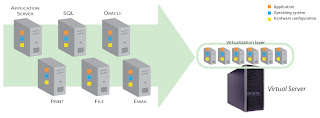
Water is the mean source of life ......we can't leave without WATER .....It is very important component required in our lifes..................... we cannot live or survive without it................
Let me tell you tricks to remember to drink water all day...:) and keep ourself healthy healthy!!!!!!!!!!!!!!!!!!!!!!!!!
1. Carry water with you everywhere you go in a bottle or other container. specially try to keep water in glass container ......rather than having in plastic container....
2. Keep a glass or cup of water next to you whenever you'll be sitting down for a long time, such as when you're at your desk at work.drink from it regularly as you're working.
3. Try wearing a digital watch that beeps at the beginning of each hour, use that as a reminder to pour yourself a glass of water . At least it makes you to remember..........to have water in between so that you receive continous water from time to time gaps.
4. Get a water purification system, as purified water tastes very good and may help drinking water more appealing to you.
5.Add Lemons or limes to your water. As it makes it taste better & makes to drink more of it.
Lot more and more option and adavantage of Water..................................
SO DRINK MORE WATER ALWAYS TO BE HEALTHY & ACTIVE ALWAYS.......!!!!!!!
Let me tell you tricks to remember to drink water all day...:) and keep ourself healthy healthy!!!!!!!!!!!!!!!!!!!!!!!!!
1. Carry water with you everywhere you go in a bottle or other container. specially try to keep water in glass container ......rather than having in plastic container....
2. Keep a glass or cup of water next to you whenever you'll be sitting down for a long time, such as when you're at your desk at work.drink from it regularly as you're working.
3. Try wearing a digital watch that beeps at the beginning of each hour, use that as a reminder to pour yourself a glass of water . At least it makes you to remember..........to have water in between so that you receive continous water from time to time gaps.
4. Get a water purification system, as purified water tastes very good and may help drinking water more appealing to you.
5.Add Lemons or limes to your water. As it makes it taste better & makes to drink more of it.
Lot more and more option and adavantage of Water..................................
SO DRINK MORE WATER ALWAYS TO BE HEALTHY & ACTIVE ALWAYS.......!!!!!!!
